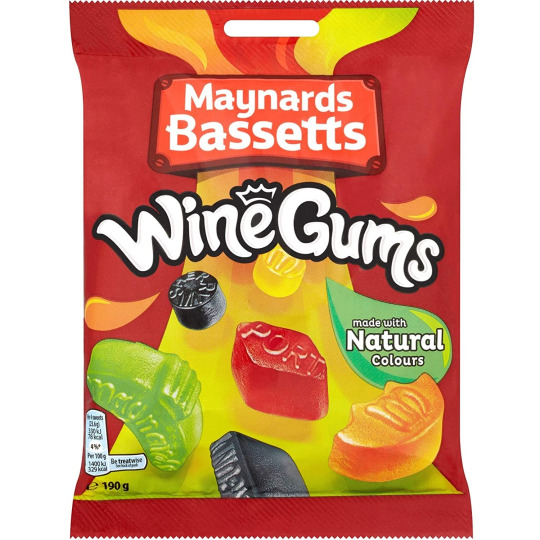#italian linguistics
Text
20 Latin Phrases And Their Italian Equivalents Still In Use Today
Latin: "Carpe Diem" - Seize the day. Italian: "Cogli l'attimo" - Catch the moment.
Latin: "Veni, Vidi, Vici" - I came, I saw, I conquered. Italian: "Venni, Vidi, Vinsi" - I came, I saw, I won.
Latin: "In vino veritas" - In wine, there is truth. Italian: "Nel vino c'è la verità" - In wine, there is truth.
Latin: "Aqua vitae" - Water of life. Italian: "Acqua della vita" - Water of life.
Latin: "Caveat Emptor" - Let the buyer beware. Italian: "Acquirente, attento" - Buyer, be careful.
Latin: "Homo Sapiens" - Wise man. Italian: "Uomo sapiente" - Wise man.
Latin: "Ad Astra" - To the stars. Italian: "Verso le stelle" - Towards the stars.
Latin: "Ars longa, vita brevis" - Art is long, life is short. Italian: "L'arte è lunga, la vita è breve" - Art is long, life is short.
Latin: "Tempus fugit" - Time flies. Italian: "Il tempo vola" - Time flies.
Latin: "Amor Vincit Omnia" - Love conquers all. Italian: "L'amore vince tutto" - Love wins everything.
Latin: "Memento Mori" - Remember that you must die. Italian: "Ricorda che devi morire" - Remember that you have to die.
Latin: "Alea iacta est" - The die is cast. Italian: "Il dado è tratto" - The die is cast.
Latin: "Verbatim" - Word for word. Italian: "Parola per parola" - Word for word.
Latin: "Vox Populi" - Voice of the people. Italian: "Voce del popolo" - Voice of the people.
Latin: "Mea Culpa" - My fault. Italian: "Colpa mia" - My fault.
Latin: "Tabula Rasa" - Clean slate. Italian: "Tavola rasata" - Clean slate.
Latin: "Non sequitur" - It does not follow. Italian: "Non segue" - It doesn't follow.
Latin: "Per se" - By itself. Italian: "Di per sé" - By itself.
Latin: "Status Quo" - The existing state. Italian: "Stato Quo" - The existing state.
Latin: "De facto" - In fact, in reality. Italian: "Di fatto" - In fact.
#latin language#latin linguistics#learning latin#roman#italian language#italian linguistics#italian#latin#learning italian#latin phrases#latin proverbs
93 notes
·
View notes
Text
The word for 'I' has many different forms in the Romance languages, such as French je, Italian io, Portuguese eu and Spanish yo. Yet all these forms stem from one Latin word: egō. Here's how egō step by step changed into a selection of its Romance descendants.
People who subscribe to my Patreon get access to extra information further explaining what you see on the infographics and videos. To give you an impression, here's the text that goes with this video.
How did these forms originate?
Latin, Late Latin and Sardinian
Around the second century AD, the [g] sound of Latin egō (as in English go) started to weaken. It became a fricative sound similar to the one in Modern Spanish agua 'water'.
In this form, with only minor vowel changes, it survived until this very day in certain Nuorese dialects of Sardinian: ego. These geographically isolated dialects are known for being the most conservative descendants of Latin. Their most notable trait is the conservation of the Latin [k] and [g] sounds before i and e: Latin centum '100' with [k] became kentu, whereas in Italian it became cento with the [tʃ] sound of English check, and in French, Portuguese and many variaties of Spanish it respectively became cent, cento/cem and ciento/cien with [s].
In a Late Latin text from the 6th century, we encounter egō as eo. By this time, the consonant had been dropped. It's this form that's considered Proto-Romance, i.e. the form that gave birth to all descendants except the form in the Nuorese dialects I discussed above. Eo even remained practically intact in a number of other Nuorese dialects.
Portuguese and Romanian
In Portuguese and Romanian, the -o of eo became w-like: eu. However, the Romanian spelling hides the diphthongisation of [ɛ] to [jɛ], later [je]. Cfr. ferrum > fier, and pellem > piele.
Italian and Neapolitan
In Italian, [ɛ] became [e] and then [i], a sound close to it: io. This sound change didn't only happen in this word: compare mio 'my' (from Old Italian meo) and Dio 'God' (from Deo) with Portuguese meu and Deus. In Neapolitan, the -o weakened and became the schwa sound of English words like roses.
Spanish and French
The form io must have also existed in the distant ancestors of Spanish and French, but there, [i] didn't stop changing: it turned into a [j], its consonantal counterpart. In both languages, this [j] eventually underwent fortition: it became a stronger consonant similar to the one in English joke, which eventually weakened again in Modern French je.
In South American Spanish, interesting things are happening. The sound change that yo pronounced as [ʒo] has undergone in the Rioplatense dialects in Uruguay and the southern part of Argentina is called zheísmo, and what's happening in Buenos Aires and spreading through Argentina is called sheísmo: [ʃo].
#historical linguistics#linguistics#language#etymology#latin#french#spanish#old french#old spanish#romanian#sardinian#portuguese#italian#proto-romance#video#audio#lingblr#late latin
704 notes
·
View notes
Note
I just recently started following you so i don't have the full lore of your murderous gay religiously traumatized doggos, BUT, from my understanding, they are Italian and i don't know what part of Italy they are from, yet i can't help headcanoning Vasco as Tuscan, while Machete is probably from some part of Veneto. And as an Italian who has heard Tuscans and Veneto dialet, well it's an hilarious mental image.
Vasco is indeed Tuscan, Florentine to be specific. He comes from a wealthy and influential noble family that has lived in Florence for centuries. He's proud of his roots, and it's usually easy for strangers to tell where he's from. He's a resonably successful politician and has worked as an ambassador and representative of Florence on numerous occasions.
Machete is originally Sicilian (ironically about as far from Veneto as possible), although he was taken to mainland at young age and has lived in several places since then, before ending up in Rome. The way I see it, he exhibits very little local color, his demeanor and (even though Italian hadn't become a standardized language yet) way of speaking are formal, neutral and scarcely give away any hints about his personal history, at least in the 16th century canon.
#I tend to take the easy way out with the various Italian dialects/languages and temper their effect on how the dog world works#even though to my understanding in reality they differ drastically from each other even today and they aren't always mutually intelligible#especially when you compare northern and southern ones#I know at least Sicilian is so different from modern day Italian it's considered a separate language entirely#it isn't the only one but I'm not a linguist and not even Italian so I'm not really qualified to be explaining any of this to you#main point is that my dogs are well traveled educated and adaptable so I'd like to believe that they manage#otherwise making this whole scenario work would become very complicated#language barriers aplenty#Machete is a fast learner with a natural knack for languages so he absorbs/decodes new ones easily#and I can see him acting as an interpreter if necessary#which is a valuable trait for someone working as the secretary of state I'd imagine#a lot of people he ends up dealing with speak at least passable Latin so at a pinch they might perhaps try switching to that?#Vasco might have a Tuscan flavor but Machete is more of a blank slate (at least in public and at work)#answered#fallenoftheromaempire#feel free to correct me if I've gotten something wrong I'm not an expert and this stuff is complicated for an outsider
196 notes
·
View notes
Text
Daily Etymology #159
Segue
Segue is a loanword from Italian, where it was derived from seguire meaning to follow. This in turn came from the Latin sequor, which meant to follow. Sequor came from the Proto-Italic *sekʷōr, from the PIE *sekʷ-, of the same meaning. Sequence, consequence and pursue are all also derived from *sekʷ-.
* Indicates a reconstructed word
83 notes
·
View notes
Text
*also known as italiano, lingua italiana
reblogs are extremely encouraged to increase sample size. regardless of what choice you picked, feel free to elaborate on your relationship with this language in the tags, and remember to be respectful and mindful when commenting!
56 notes
·
View notes
Text
Ciao, amicə italianə (o che parla italiano)! Per la Giornata del Parlare la Propria Lingua (SYLD) ti propongo questo quesito:
1) conta da uno a dieci ad alta voce
2) per favore, rispondi a questo sondaggio:
Grazie! Se vuoi, aggiungi nei tag di dove sei⭐
239 notes
·
View notes
Text
what color do you associate with each language you speak?
#this is for a project so hELP#i realize there could be some arguments so argue away#desiblr#desi tag#desi#language#languageblr#linguistics#culture#spanish#french#hindi#telugu#marathi#tamil#foreign languages#surveys#research#russian#italian#german#korean#japanese#shri's posts
169 notes
·
View notes
Text
People whose native language has grammatical genders - how’s it going with non-binary people? Are there new word forms that can be used instead? I know that you get latinx etc - any others? Or do you just have to live with gender everywhere?
#queer stuff#linguistics#Italian#French#German#Spanish#language#anyone else is welcome to reply; I was just getting the ball rolling with those tags
94 notes
·
View notes
Text
what i believe different romance languages taste like
Spanish: Mango Ice Cream.
idk, the vowels and the way you pronounce stuff is very upbeat and smiley and stuff, plus most spanish speakers talk super duper fast and im holding on for dear life trying to listen and silmontaniuosly translate in my head. plus spain is warm.

French: Strepsils
specifically lemon ones, i only did french for a year in school and hated it. dont get me wrong the language is pretty but you have to like pronounce stuff out of your nose and all(?), so the weird feeling and aftertaste in your mouth after a throat sweet is just fitting

Portuguese: Watermelon
its fitting. sometimes watermelon's sweet and juicy other times its anemic and really watery. just like how portuguese sounds super cool put people water it down as just another version of spanish. Plus it's such a summery language if that makes sense, like it just sounds bright but it feels earthy, so maybe a watermelon with dirt on it or smthn, idk it sounds a lil crunchy but still bright yk

Italian: Winegums
Italian's got this sophisticated edge to it, especially with the music + art history in Italy. It feels like the head of the (i think its called 'the romance language) family. Wine gums are good, they're still kinda sweet and fun to suck on when you've got fuck all else to do or your ears have popped cus you're in an aeroplane, but they still taste mature if that makes sense. it's not a go to, but it's a staple, and your granny probably has it in her handbag or in her car as a travel sweet.

Romanian: Werthers Original Butter Candies
they're sweet and smooth and kinda melt on your tongue, which is what Romanian sounds like to me yk. but they also feel mature and it's got this kinda feel to it that Spanish or Catalan doesnt have where it's slightly sharper in the way you pronounce words and stuff, but still soft enough. Romanians a unique language, (all languages are unique but oh well), its not sought out by learners like Spanish or French but its still a staple, which is why werthers fits.

Catalan: Passion Fruit Margarita
i'm not explaining myself on this one.

i might continue this with other indo-european languages, though idk if i want to do baltic, slavic, germanic or celtic next🧍
#ailillgachuair#languages#spanish#french#catalan#italian#portuguese#spain#portugal#italy#france#romance languages#romantic languages#indo european#indo european languages#linguistics#language
58 notes
·
View notes
Text
How the Renaissance Shaped the Italian Language
The Renaissance, a period of immense cultural, artistic, and intellectual growth in Europe, played a crucial role in the development of the modern Italian language. This era, spanning the 14th to the 17th century, witnessed a revival of interest in the classical art, literature, and learning of ancient Greece and Rome, significantly influencing the evolution of the Italian language.
Dante Alighieri's Contribution:
Dante Alighieri, often referred to as the "Father of the Italian language," was instrumental in establishing the Tuscan dialect as the standard for the Italian language. His most famous work, "The Divine Comedy" ("Divina Commedia"), written in the early 14th century, was one of the first major works of literature written in the vernacular, i.e., the local Tuscan dialect, instead of Latin. Dante's choice of the vernacular over Latin marked a pivotal moment in the development of Italian as a literary language.
Dante's works demonstrated the expressive and aesthetic possibilities of the Italian language, elevating its status and proving it could be used for serious, high literary pursuits, a domain previously reserved for Latin.
Petrarch's Influence:
Francesco Petrarca, known as Petrarch, further solidified the use of the vernacular in literature. He is best known for his Italian sonnet sequences, which focused on themes of love, personal reflection, and the human experience. Petrarch's poetry, particularly his "Canzoniere" (Songbook), greatly influenced Italian literature and language. His refined use of the vernacular and his development of the Italian sonnet format set a standard for lyrical poetry in Italian.
Boccaccio's Contributions:
Giovanni Boccaccio, another key figure of the Italian Renaissance, also contributed significantly to the development of the Italian language. His most famous work, "The Decameron," is a collection of novellas written in the vernacular. It not only had a profound impact on Italian literature but also helped to shape the Italian language by demonstrating its suitability for both serious and more lighthearted, secular topics.
Impact on Standardizing Italian:
The works of these authors were essential in the standardization of the Italian language. Their choice of the Tuscan dialect, particularly that of the Florentine region, as their literary medium contributed to its status as the basis of standard modern Italian.
Legacy and Continued Influence:
The Renaissance's focus on humanism and the return to classical sources also played a role in shaping the Italian language. This period encouraged a deeper exploration of the human condition, emotion, and intellect, aspects that were deeply integrated into the Italian language through literature and art.
In sum, the Renaissance was a period of reawakening that not only rediscovered the riches of classical antiquity but also set the foundation for the development of the modern Italian language. The works of Dante, Petrarch, and Boccaccio were not just literary masterpieces but also linguistic milestones that established the prestige and potential of the Italian vernacular, leading to its evolution into the modern Italian language we know today.
#italian language#learning italian#italian linguistics#renaissance#italian#italian literature#italian culture#romance languages#learning latin#latin linguistics#latin language#roman#italy#italian landscape
32 notes
·
View notes
Text
Latin had six noun cases, but in all Romance languages except Romanian, nouns only have one singular form and one plural form left. What happened? This extra large infographic tells you in ten steps how the Latin case system collapsed – and how the accusative case emerged victorious.

What caused the case system to collapse in the first place? There were multiple factors. Regular sound changes did a lot of damage: many endings had come to be pronounced the same: -ō and -um; -is and -ēs; -us and -ōs; -a, -am and -ā; -e and -em. This obfuscated the system a lot.
#historical linguistics#linguistics#language#etymology#latin#french#spanish#italian#old french#portuguese#romanian#noun cases#lingblr
216 notes
·
View notes
Note
what part of italy are machete and vasco from? not their birthplace since from what i've seen you're still workshopping that. where do they live? i assume rome?
In the 1500's setting Vasco lives and was born in Florence, his family has lived there for centuries. Machete was born in Sicily, was taken to Naples to serve as an apprentice and ended up living and working in Rome (and more specifically today's Vatican city, which as you may know has been an independent country since 1929 but wasn't back then). They first met when they were both studying in Venice in their late teens/early twenties.
I think in the modern au they live together somewhere in Florence.
#characters travelling this extensively at the time#from one end of the country to another#may not be very realistic but it's more fun to include a variety of interesting historical locations#let me be greedy and self indulgent for a moment#(not to mention that Italy wasn't unified until late 1800's and was instead made of various states kingdoms and duchies#that didn't always get along with each other that well and were culturally and linguistically diverse#and some of them were actually ruled Spain and Austria for example)#I say this as lovingly as possible but the history of Italian peninsula as a whole is just a real clusterfuck#I feel like I still haven't wrapped my head around it adequately to be explaining any of this to you#but please be patient with me I promise I'm trying my best#answered#anonymous
185 notes
·
View notes
Text
In Italian language, "chi", e.g. "chioma" is read like [kioma] and "ci", e.g. "cinta" is read like [cheenta].
In Lithuanian language, "ci" is read like in "Tsitsipas" and "chi/či" like in "cheesecake."
Anyway, our choir tried to sing the Italian national anthem for the first time, and 🤣🤣🤣 by the end, only 2 people were singing - the girl who's already been to Italy by Erasmus and me who watched Jojo Vento Aureo with subs.
You could have heard sobbing from different corners.
#Italian language#italy#italian langblr#Lithuanian language#Lithuania#Lithuanian langbr#linguistics#thanks god I also used to listen to Adriano Celentano as a kid#he saved my a$$
21 notes
·
View notes
Text
Fun fact about tbosas names: in the italian version they have the proper latin names, such as "Clemensia" written "Clementia" (same pronunciation) but the most fun one are "Sejanus" written "Seianus" and in this case the pronunciation is different so here I am, only hearing the wrong name online and in the movie too.
#I didn't study linguistics and such so I don't know how to write to you the correct pronunciation#I mean in italian you read it like it's written (where clemensia is the spelling of the pronunciation too in italian)#sejanus plinth#seianus plinth#clemensia dovecote#the ballad of songbirds and snakes#tbosas#names
22 notes
·
View notes
Text
modern standard italian as a historical language is fascinating since it’s essentially a slightly modernized form of the florentinian dialect of the 13th century that dante was writing in, it’s a dialect that fossilized in the medieval period. most linguists i’ve read have said that dante’s italian in the divine comedy is closer and more intelligible to modern italian than shakespheare is to modern english, despite the fact that dante wrote 800ish years ago and shakespheare wrote only 400 years ago.
216 notes
·
View notes
Text
Please help a trans man get his diagnosis
Hello! I am a trans man in a very precarious financial situation who maybe has found a way to finally get a dysphoria diagnosis that isn't prohibitively expensive for someone unemployed and whose parents don't support. Point is, I still need about €150 for it. If you have even a spare euro it would help me so much. My PayPal is @/gfcallisto , anything helps really. Thanks
€0/150
#transgender#trans man#trans boy#gender dysphoria#mutual help#trans masculinity#don't want to spam tags but im going to add a few things that are true abt me if not related to the post in hope of it reaching more people#italian#communist#communism#linguistics#t4t#bisexuality
35 notes
·
View notes